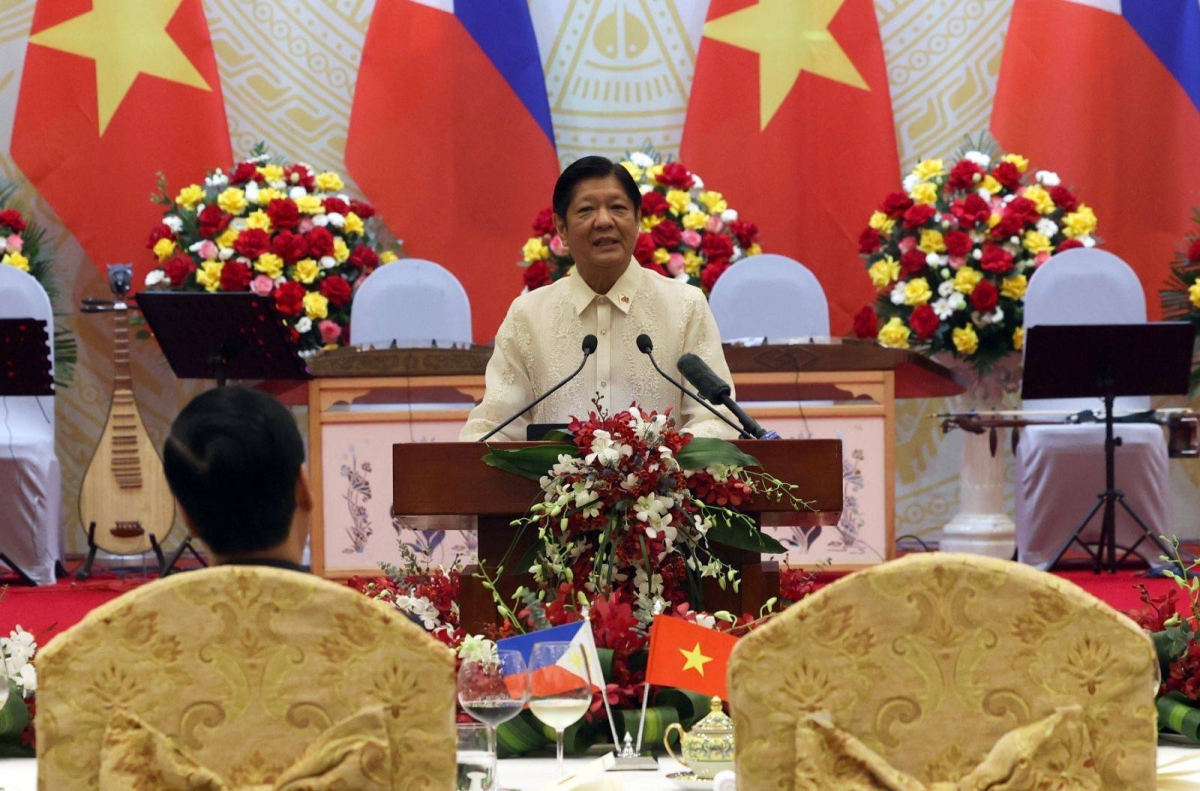President Ferdinand Marcos Jr. of the Philippines has recently announced his intention to advocate for a separate code of conduct (COC) on the South China Sea in collaboration with the Association of Southeast Asian Nations (ASEAN). This initiative is set to begin with Vietnam, another ASEAN member-state that also asserts its claim over the disputed waterway. Notably, Brunei and Malaysia are also among the countries with territorial claims in the region.
With this proposal, President Marcos aims to establish a comprehensive set of guidelines to govern the actions and behavior of nations involved in the South China Sea dispute. By creating a COC, the Philippines and its ASEAN counterparts seek to promote peace, stability, and cooperation in the region, ensuring that any conflicts or disputes are resolved through peaceful means and in accordance with international law.
President Marcos expressed optimism regarding the progress of this endeavor, stating, “We’re pretty much there.” While the exact details of the COC are yet to be finalized, the proposal signifies a significant step forward in addressing the complex issues surrounding the South China Sea.
The South China Sea has long been a contentious area, with multiple countries claiming sovereignty over different parts of the waterway. The disputes primarily revolve around territorial claims and control over strategic islands, reefs, and resources within the region. The lack of a comprehensive COC has often led to tensions and confrontations among the claimant states, posing risks to regional stability and security.
By advocating for a separate COC, President Marcos recognizes the importance of establishing clear rules and guidelines to prevent any potential conflicts from escalating. This initiative aligns with ASEAN’s commitment to maintaining peace, stability, and security in the region, as well as promoting the rule of law and a rules-based international order.
The proposed COC is expected to address various aspects of the South China Sea dispute, including the freedom of navigation and overflight, the peaceful resolution of disputes, the protection of marine resources, and the prevention of any activities that may escalate tensions. It will aim to establish a framework that encourages dialogue, cooperation, and mutual respect among the claimant states.
The Philippines, Vietnam, and other ASEAN member-states have a vested interest in safeguarding their territorial claims and protecting their maritime resources. By working together to develop a COC, these nations can enhance their collective bargaining power and present a united front when engaging with other stakeholders in the South China Sea dispute, such as China.
It is important to note that the South China Sea dispute has implications beyond the region itself. The international community has a vested interest in ensuring that the principles of international law, including the United Nations Convention on the Law of the Sea (UNCLOS), are upheld. A robust and enforceable COC will not only benefit the claimant states but also contribute to regional peace and security, as well as the stability of global maritime trade.
As President Marcos and ASEAN continue their efforts to finalize the COC, it is crucial for all parties involved to approach the negotiations with a spirit of compromise, open-mindedness, and respect for international law. By doing so, they can pave the way for a peaceful and prosperous future in the South China Sea, where disputes are resolved through dialogue and cooperation rather than confrontation and conflict.
In conclusion, President Ferdinand Marcos Jr.’s proposal for a separate code of conduct on the South China Sea with ASEAN marks a significant step forward in addressing the complex issues surrounding the disputed waterway. By establishing clear rules and guidelines, the Philippines and its ASEAN counterparts aim to promote peace, stability, and cooperation in the region. This initiative not only benefits the claimant states but also contributes to regional and global security. As negotiations continue, it is crucial for all parties involved to prioritize compromise, open-mindedness, and respect for international law.







